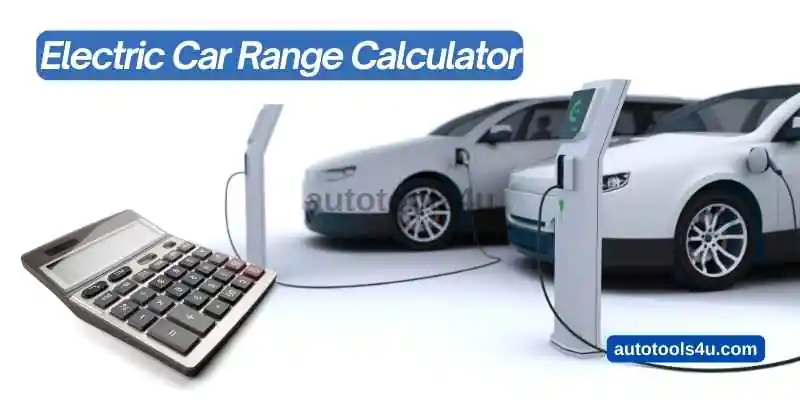Do you think that EV range numbers published in the public consumer domain are religiously correct? not so much! Like everything else these numbers do depend on real-world factors whether we like it or not, are real. We have developed this Handy EV / Electric car range calculator which takes into account weather, traffic conditions, efficiency, and battery life.
you might also want to have a look at our handy collection of calculators which are excellent tools for journey cost approximation as well as comparing journey cost for both electric or petrol/diesel cars.
Electric car charging cost calculator
FAQ – EV Range
What are the dominant factors which affect EVs ( Electric car ) range?
The range of an electric vehicle (EV) can be affected by various factors, including:
- Extreme temperatures, both hot and cold, can affect an EV’s range. Cold temperatures can reduce the battery’s performance and increase energy consumption.
- Hard acceleration, braking, and rapid speed changes can increase energy consumption and reduce an EV’s range.
- Carrying heavy loads, such as passengers or cargo, can also reduce an EV’s range.
- The capacity of the battery pack is the most significant factor affecting an electric vehicle’s range.
- Driving at higher speeds requires more energy, which can reduce the range of an EV.
- Using air conditioning, headlights, and other accessories can increase energy consumption and reduce an EV’s range.
What is the effect of Rough driving on the EVs range?
Rough driving, such as aggressive acceleration, hard braking, and frequent speed changes, can have a negative impact on an EV’s range. This is because rough driving increases the energy consumption of the vehicle’s electric motor, which drains the battery faster and reduces the range. When an EV accelerates quickly or brakes abruptly, it requires more energy from the battery to maintain its speed or come to a stop. Similarly, frequent speed changes can cause the electric motor to work harder to adjust to the different driving conditions, which can also increase energy consumption. To maximize the range of an EV, it’s recommended to drive smoothly and maintain a consistent speed as much as possible.
What is the effect of temperature on the EVs Range?
Temperature can have a significant impact on an EV’s range. Cold temperatures can reduce the performance of the battery and increase energy consumption, while high temperatures can reduce the battery’s trip life. In cold temperatures, the chemical reaction within the battery that produces electricity slows down, which can reduce the overall capacity of the battery. This means that an EV may not be able to travel as far on a single charge in cold weather. Additionally, heating the cabin in cold temperatures requires energy from the battery, which can further reduce the range. On the other hand, high temperatures can accelerate the degradation of the battery, reducing its overall lifespan. To alleviate the effects of temperature on an EV’s range, it’s recommended to park the vehicle in a garage or shaded area to avoid direct sunlight and extreme temperatures.
How to plan a journey when going long distances using EVs?
When planning a journey using an EV for long distances, it’s important to plan ahead. Plan your travel time based on your vehicle’s range and charging stops. It’s important to allow extra time for unexpected delays or detours. Identify the locations of charging stations along your route and make sure they are compatible with your vehicle. Consider using online resources, such as maps and mobile apps, to plan your route and find charging stations. Estimate the time required to charge your vehicle at each charging station along your route. This can help you plan your travel schedule and ensure you have enough time for each charging stop. Estimate the range of your vehicle and plan your route accordingly. Take into account factors such as terrain, driving speed, and weather conditions, which can affect your vehicle’s range. Monitor your vehicle’s battery level and adjust your driving behavior as needed to maximize your range. This can include driving at a steady speed, avoiding hard acceleration and braking, and minimizing the use of accessories that consume energy. Most important –
- Have a backup plan in case of unexpected events, such as a charging station being out of service or inclement weather conditions. Consider carrying a portable charger or backup battery pack to ensure you can charge your vehicle in case of an emergency.
